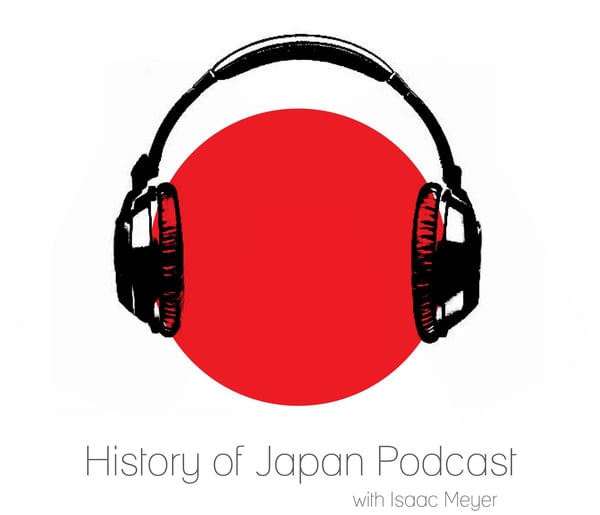Episode 440 - Tipping the Balance
History of Japan
Isaac Meyer
4.8 • 744 Ratings
🗓️ 3 June 2022
⏱️ 35 minutes
🧾️ Download transcript
Summary
The Jokyu Rebellion is one of the more minor conflicts in Japanese history; yet it also represents a tipping of the political balance of Japan that, eventually, will profoundly reshape the country. This week, we explore one of the chronicles of that conflict to see what we can learn about it, and about medieval Japan more broadly.
Show notes here.
Transcript
Click on a timestamp to play from that location
| 0:00.0 | Hello and welcome to the History of Japan podcast, episode 440, Tipping the Balance. |
| 0:22.3 | Recently, one of my supporters on Patreon asked me a question that's been on my mind for a bit. |
| 0:27.7 | They asked something to the effect of, why is it that there's this theme in Japanese history |
| 0:32.4 | of maintaining the fiction of an old political order, even while establishing a new one. |
| 0:39.0 | Why, for example, would hundreds of years of samurai governments, possessed as they were of, |
| 0:44.1 | if not a monopoly on force, at least a pretty strong hold on the field, feel compelled to keep |
| 0:49.4 | around a bunch of fuddy old aristocrats and an emperor to trot out for ceremonial occasions? And why would said aristocrats and fuddy old aristocrats and an emperor to trot out for ceremonial occasions. |
| 0:55.4 | And why would said aristocrats and fuddy old emperor go along with such an arrangement? |
| 1:01.4 | It's a good question, and one that comes up a lot when you start exploring Japanese history. |
| 1:07.0 | On the samurai side of things, I think the answer is comparatively straightforward. |
| 1:11.2 | The legitimacy provided by aristocratic institutions relative to their threat level made the decision to keep them around fairly easy. |
| 1:20.0 | One could draw an analogy to the early centuries of the Roman Empire, when the institutions of the Republic were maintained on a superficial level to lend legitimacy to the rule of the emperors. |
| 1:31.9 | After all, as the old saying goes, you can kill some of the people some of the time, but you can't |
| 1:36.6 | kill all of the people all of the time, because if you do, what's left to rule over. |
| 1:42.2 | So anything that enables you to govern that gives you legitimacy |
| 1:45.4 | beyond just pure force of arms is potentially very useful. But what about on the side of the |
| 1:51.7 | aristocracy? Why would they accept subordination? The answer, simply put, is that many of them did not, |
| 1:59.0 | and it was only once those aristocrats were either cowed or dead, |
| 2:02.8 | that the remainder began to accommodate themselves to the new order of things. |
| 2:07.4 | The most famous example of aristocratic resistance to the new warrior-dominated order is the so-called |
| 2:13.3 | Kenmu Restoration, when the Emperor Go Daigo led an uprising in the 1330s to attempt to restore |
| 2:19.6 | power to the imperial court, only to be thwarted when one of his warrior allies, Ashkaga Takauuchi, |
... |
Please login to see the full transcript.
Disclaimer: The podcast and artwork embedded on this page are from Isaac Meyer, and are the property of its owner and not affiliated with or endorsed by Tapesearch.
Generated transcripts are the property of Isaac Meyer and are distributed freely under the Fair Use doctrine. Transcripts generated by Tapesearch are not guaranteed to be accurate.
Copyright © Tapesearch 2025.

